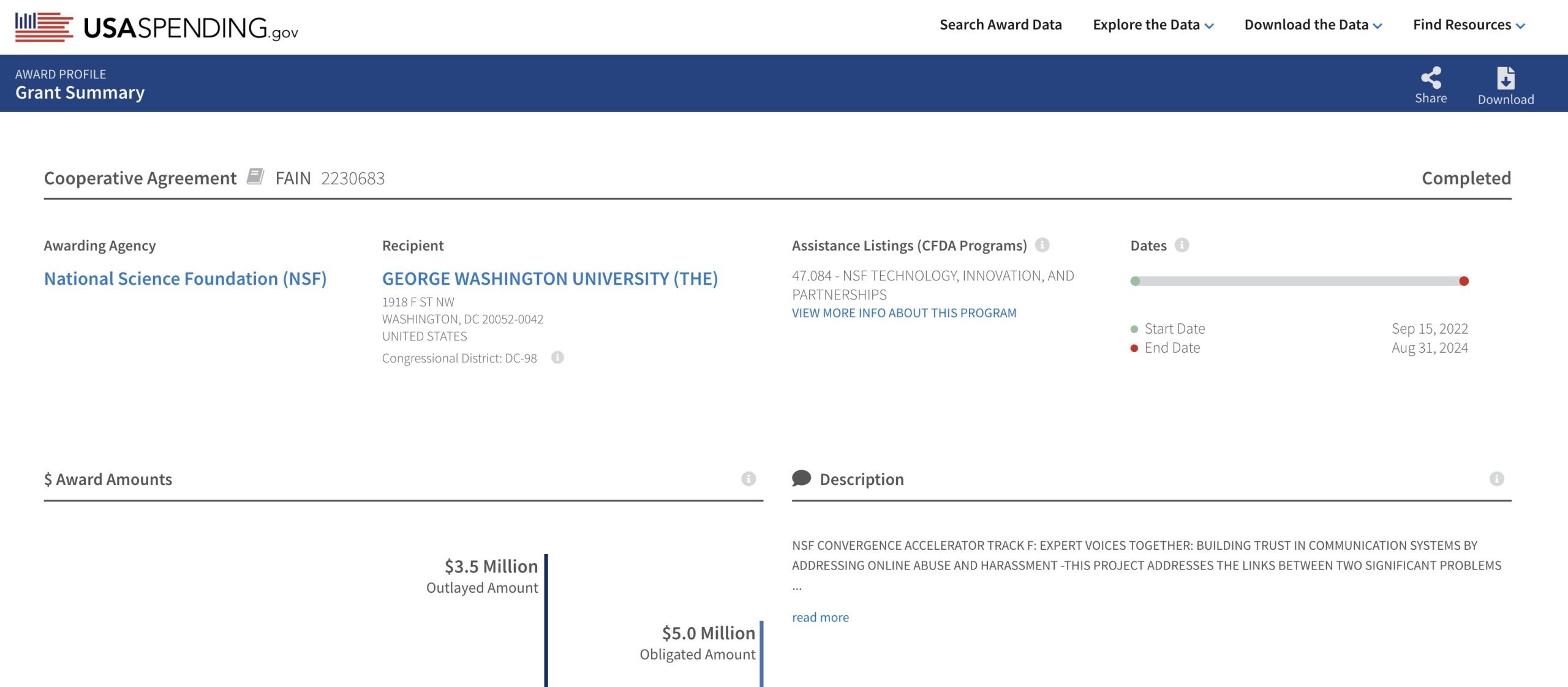The Biden administration awarded George Washington University a $5 million grant through the National Science Foundation to combat what it calls “misinformation” and online “harassment,” it has now been revealed. The grant, which began in September 2022, is part of a broader push to control online discourse under the guise of protecting trust in communication networks.
According to the grant summary, the funds were allocated to address two alleged issues: the rapid spread of misinformation and the harassment of experts, including journalists, scientists, and public health officials. The document argues that such harassment discourages expert participation and undermines public confidence in credible sources of information.

However, the grant fails to specify what qualifies as “misinformation,” who the targeted experts are, or what examples of harassment it aims to address. Given the political landscape, the administration’s past statements suggest that the so-called misinformation in question likely includes viewpoints that challenge leftist narratives. For instance, the lab leak theory of COVID-19 was initially dismissed as misinformation but is now widely accepted as a plausible explanation for the virus’s origins. This raises concerns that efforts to combat misinformation are less about ensuring accuracy and more about silencing dissent.
The Biden administration has a history of funding initiatives to combat misinformation while simultaneously promoting questionable narratives. A previous investigation revealed that at least $267 million had been spent on similar research grants.
The grant funds the development of a “socio-technical system” designed to provide real-time assistance to experts facing online harassment. Initially targeting journalists, the system is expected to expand to other fields and will offer personalized digital safety support, monitoring tools for reporting abuse, and a “community care system” based on trauma-informed practices.
Notably, trauma-informed care has been criticized for being weaponized in ideological battles. Colleges, for example, have used such frameworks to push a “believe all women” stance in sexual assault cases, even when inconsistencies or contradictions exist in alleged victims’ statements. The same approach could be leveraged to shield certain experts from legitimate scrutiny under the pretense of preventing harassment.
This is another example of the government’s ongoing efforts to police speech under the justification of fighting misinformation, raising concerns about censorship disguised as protecting public trust.








